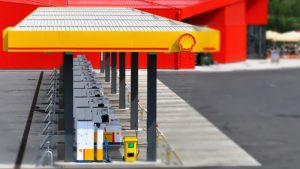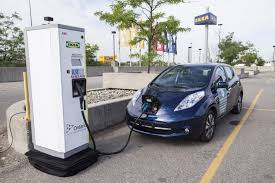Background
It was reported recently that Shell, the oil giant, had bought a company, New Motion, a Dutch firm with 30,000 private charging points at home and offices in Europe. This is an interesting development, and it indicates that the oil giants are contemplating a business life after oil.

The downstream sector, especially the retailing of petroleum products such as gasoline (petrol) and diesel, contributes a major proportion of the oil giants’ revenue. A small developing country like Malaysia has a large petroleum products retail market. The local oil giants such as Petronas, Petron and Shell enjoyed billions of RM from sales of petroleum products. The size of the petroleum products market was worth more than RM60 billion in 2014, based on the annual reports of the three companies. If sales of other smaller players like BP Petroleum and Caltex are included, the total market would be more than RM65 billion.
According to Petroleum Dealers Association of Malaysia, there are more than 3,500 petrol stations in Malaysia. As petroleum products such as gasoline and diesel are volatile and are subject to stringent safety requirements, dedicated petrol outlets are required. The first modern petrol station was established in 1913 in US.
Over the years, petrol stations have added products such as foods and drinks, and some bigger petrol stations have attached fast-food restaurants. The sales of petroleum products still make up the biggest proportion of sales of the oil giants, which result in enormous profit for them.
The Expected Withering of the Petrol Stations
The entry of Shell into the electric car charging business shows that the oil giants are facing a major disruption to its retailing of petroleum products business sector. These petrol stations have made the oil giants into well-known brands and corporate power.
The electric car revolution would have a major impact on the long-term viability of the petrol stations as a business. Electric cars will be embraced by consumers, first in the developed countries, followed by developing countries. Car manufacturers and other companies are racing each other to develop electric cars with longer range. Many countries such as Netherlands are encouraging cities and electricity generating companies to install charging stations at housing estates, homes, hypermarkets car parks and elsewhere.
Impact of the Oil Giants’ Revenue in Malaysia
Although the penetration of electric cars in Malaysia is still small, the Malaysian government is committed by international treaties to reduce toxic emission from fossil fuels. In addition, the price of electric cars will continue to decline as innovative companies such as Tesla and Nissan are developing denser batteries at cheaper prices.

The adoption of electric cars in Malaysia will be patchy initially. We foresee tax incentives may spur consumers to purchase electric cars due to various reasons, such as convenience of recharging and advanced features of electric cars such as self-driving. We foresee there would be no turning back to the adoption of electric cars in Malaysia.
The impact to the oil giants’ revenue would also be significant. At the market worth of petroleum products of more than RM65 billion per annum, a tenth reduction of consumption of petrol would amount to RM6.5 billion of lost revenue per year. The amount of lost revenue would be serious with higher adoption of electric cars. Tax revenue to the Malaysian government will also reduce as tax forms a major component of the price of petrol.
Shell believes that consumers will patronize its petrol stations to charge their electric cars. Currently, consumers have no choice but to go to petrol stations to fill-up petrol into their cars.
We expect that charging stations will be available in all sorts of locations as long as there is supply of electricity. Why should consumers go to a Shell petrol station to charge their electric cars when they can do it at homes?
Could we see the slow death of the ubiquitous petrol stations with the large logos of the oil giants standing high and can be seen from far?